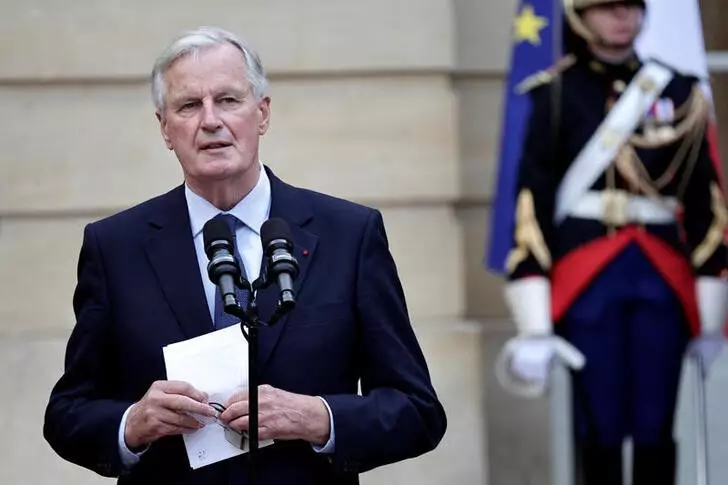In the midst of deep political fault lines and a divided parliament, French President Emmanuel Macron has appointed Michel Barnier, a seasoned political figure known for negotiating Brexit, as his prime minister. This decision comes at a crucial time for Macron, who is facing growing questions about his ability to lead the country until 2027. However, Barnier’s appointment is not without controversy and challenges, as he navigates a complex landscape of political alliances and expectations.
Michel Barnier, aged 73, has had a long and distinguished career in French and European politics. From being a lawmaker at a young age to serving in various government roles, including foreign minister and EU commissioner, he has garnered experience and expertise in navigating complex political situations. However, his latest role as prime minister comes with its own set of challenges, including the need to push through unpopular budget legislation and address pressing issues such as the cost of living crisis, security, and immigration.
Despite Macron’s view that the parliament has a center-right lean, Barnier’s appointment has faced opposition from the left, who view it as a “democratic coup.” Additionally, he has secured tentative support from Marine Le Pen’s far-right National Rally, which comes with its own set of conditions. This places Barnier in a delicate position of having to balance competing interests and demands from different political factions.
The dynamics between Macron and Barnier will be closely watched, as Macron seeks a prime minister who can provide a semblance of an adversarial relationship while preserving his legislative achievements. However, skeptics doubt Barnier’s willingness to challenge the president, with some likening him to a “slightly older, slightly taller version of Macron.” This raises questions about Barnier’s independence and ability to push back against Macron’s policies.
Barnier’s shift from negotiating Brexit to entering French politics raises questions about his evolving beliefs and political stance. While he has been vocal about the need to address far-right ideologies, there are concerns about his previous hardline views on issues such as immigration. Additionally, his prediction that “Macronism is set to disappear in 2027” adds a layer of uncertainty to his role as prime minister and his future in French politics.
Michel Barnier’s appointment as prime minister reflects the complex and evolving nature of French politics. As he navigates a divided parliament and competing political interests, his ability to address pressing issues, maintain independence from Macron, and adapt to changing political dynamics will determine the success of his tenure. Only time will tell if Barnier can rise to the challenges of running a country riven by deep political fault lines.

